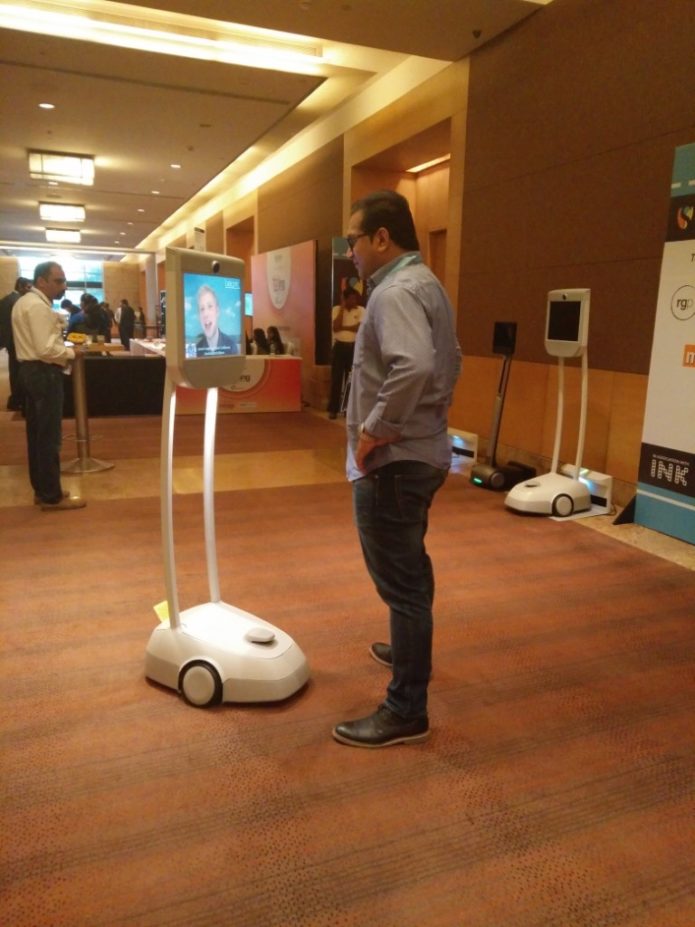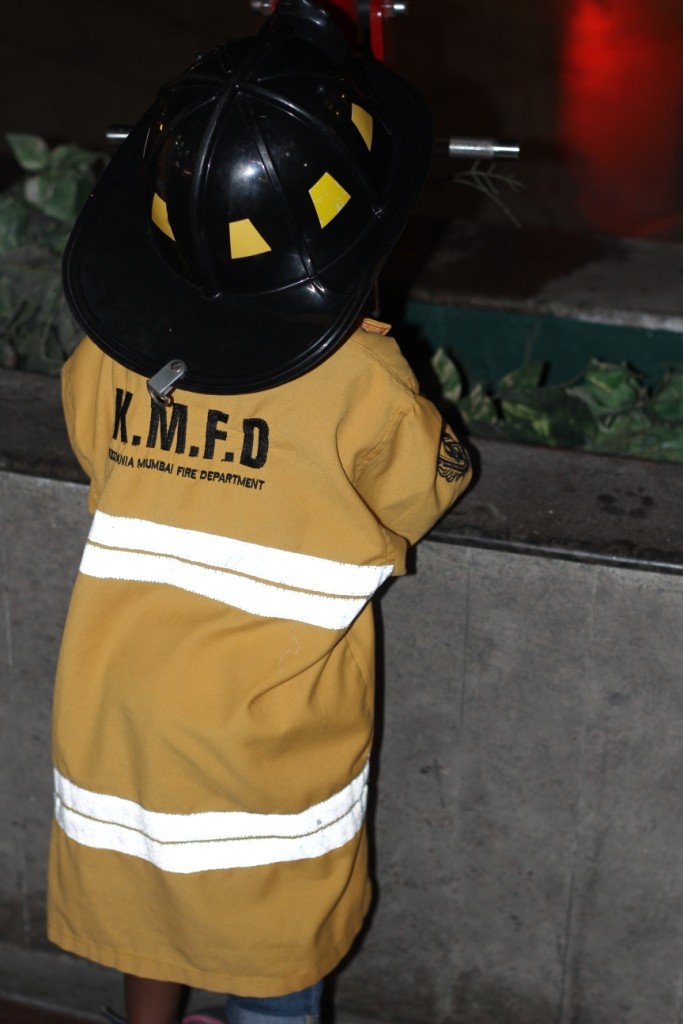Lee Sedol is a name that I wont forget in a hurry. For he carried the weight of humanity and couldn’t carry it for long. For mankind’s creation was outsmarting him. Google’s DeepMind was beating him at his game. AI trumped human intelligence, and how!
I first heard about Lee Sedol in February of this year. At the Singularity University, India Conference. I wrote earlier that the most enticing part of ‘Sigularity University’ is the idea of it all. I have been thinking about it and I can’t help agree more that statement. The ‘idea’ that it has come alive in this format is something to relish and imbibe.
For starters, what is Singularity U?
Wikipedia calls it a ‘Silicon Valley think tank that offers educational programs and a business incubator’. It was founded by Peter Diamandis and Ray Kurzweil in the NASA research park, near San Jose, California, but its idea is global. In fact, it extends far into the sky.
I read a review of Ray Kurzweil’s book “The Singularity is Near”, and it read this way. “If it does have a weakness it has to be the fact that it is so conceptually and theoretically advanced, so breathtakingly far-sighted and so exhaustively precise in its most minute cutting-edge scientific detail that readers may find it at times hard to follow.” You could say the same for Singularity U as well. Well, almost.
Names like Kurzweil and Diamandis with ‘founder’ tags on any enterprise, will make anyone in the know of them, sit up and take notice of the enterprise. And if you were going to go over the curriculum that is designed by them, why would it ‘just’ excite you? ‘Our mission’, the website proclaims, “is to educate, inspire and empower leaders to apply exponential technologies to address humanity’s grand challenges”
The key words there are ‘Exponential’ and ‘Grand’. It isn’t about chipping away at just another of many of the world’s problems. How about ‘global poverty’. Or ‘drought’. Stuff of that nature requires a fundamental approach that is different from the ones that we have taken before.
The grand challenges that are attempted to be scaled are in the areas of Learning, Energy, Environment, Food, Health, Prosperity, Security, Water, Space, Disaster Resilience and Governance.
The exponential technologies that are deployed are
1. AI & Robotics
2. Digital Biology and Medicine
3. Digital Fabrication and Nano Technology
4. Networkes and Computing Stystems
using the following tools and methods of
1. Policy, law and ethics
2. Entrepreneurship
3. Design Thinking
4. Corporate Innovation
5. Data Science
6. Future Forecasting
This information is available on the website and one that I read in greater detail after attending the Singularity U conference. Relieved, as I am, to read the first point under tools and methods : ‘Policy, law and ethics’. More on that later.
For sitting through the conference I heard speaker after speaker charm the audience with their intellectual prowess and technological detail. The picture of the future that got presented as one that is built with technology at its nerve centre. Attempting to scale the big challenges that we are faced with today requires not just technology, in my opinion. It needs more than just technology but the presence of technology changes the nature of scaling the problem. Starting with Peter Diamandis who quoted Steven Kotler’s 6 D framework for exponential entrepreneurship ( Digitalisation, Deception, Disruption, Demonetisation, Dematerialisation, Democratisation), ever presentation in the conference was stellar and thought provoking.
In the conference in itself there were BEAMS moving around. You could actively speak to people from around the world, as though they are physically standing next to you. Cool stuff, you would think. But it clearly seemed to pale in comparison to what was said on the stage.
Sample these : Would you say driverless cars as a technology was a big idea? Sure. But how about that changing how our cities are constructed? It seemed a rather tenuous link until it was argued well by Brad Templeton in a swashbuckling speech. Rob Nail played with robots as though they were humans and showed what’s coming. Frankly, one part of me was so enthused and another was plain scared. I have been speaking about robots changing the nature of work at several places and here I was seeing it happen even more closely. Brock Pierce‘s passionate presentation on how Blockchain technologies could alter how ‘money’ and transactions happen across the world altered my goalposts for the future. Altered them and how. Neil Jacobstein‘s presentation on AI was nothing short of spectacular. The list seems endless. Topics ranging from data, data security, organisation learning and the works!
In the two days that I was there, the future looked distinctly different from what I had imagined. And when I came back and read more about SingularityU, it looked even more so. The name ‘Singularity University’ seems, well, different. “Singularity” is a term that co-founder Kurzweil made popular. I would describe it as that point, to put it simply, when the machines become more intelligent than men. Keeping technology at the centre makes clear the idea and purpose of Singularity University.
Coming back to the point around why I am relieved to see that one line ‘Policy, law and ethics’. Every solution, in my opinion, cannot be a technological one. Sure, it can be lead by technology and technology has altered our lives in ways that are beyond simple. But our futures are about people and the interfaces it has with our laws and outlook that we have for our lives. There needs to be a conversation around the pronounced and silent impact of technology in our lives. On all sides. The positive and the negative. I am only glad that that space exists even if it didnt get spoken in the conference in itself.
That said, the work that Singularity University is doing in reaching the reset arc of technology to many people, sounds super exciting. SU as its called, has got several aspects going for it. It’s got the best of names on its roster. It’s got a great set of organisations supporting it. It has a stellar student list. And of course, pursuing a great goal ( Positively impacting a billion people in ten years). I Its stellar and superb work but not so commonly available. Some level of democratising access to its unmistakably ‘Silicon Valley thinking’ on these will help. I hope it will come as SingularityU works on disrupting itself and what it seeks to achieve over a period of a time.
Larry Page is said to have remarked: “If I was a student, this is where I’d want to be”. You don’t arch an eyebrow when you hear of the clamour for admission to the 10 week “Global Solutions Program“. The program is designed to “empowers participants with the tools, knowledge and skills for positively impacting billions of people”. While that may sound like a chic marketing line, it is in that arc that SU works on. There of course are executive programs, conferences around the world all to perpetuate the idea of ‘SingularityU’.
As I sat reading more about DeepMinds and how much of a profound moment it is to be around when a machine that man has designed has enough in it to beat human intelligence, the idea of SingularityU is unmistakable. We are playing a different game now and we need SingularityU (and more players like SingularityU) to spread the word, build a conversation, generate greater awareness and help us be mindful of our choices.
The SingularityU India summit happened in partnership with INK Talks. I got to attend it thanks to Blogadda.com.

















